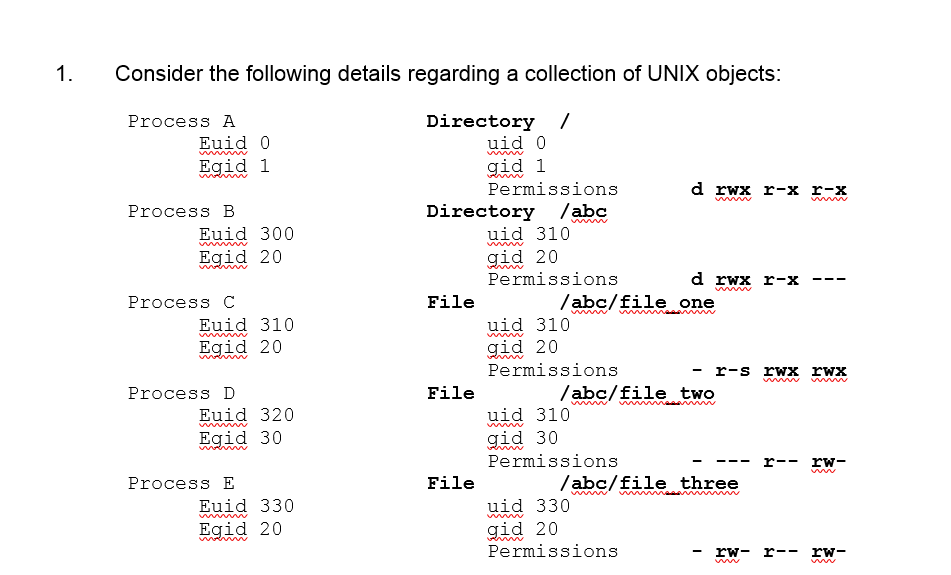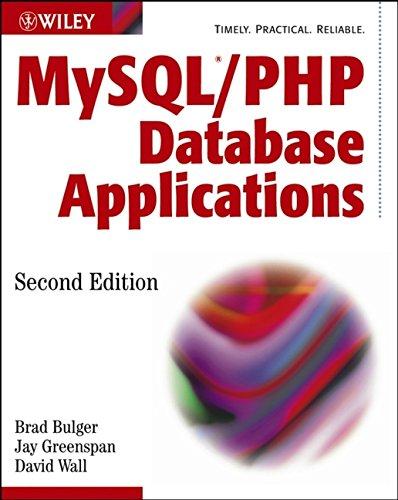Question
A. Can process D write on /abc/file_three ? Explain . B. Can process A write on /abc/file_one ? Explain . C. Can process C use

A. Can process D write on /abc/file_three ? Explain.
B. Can process A write on /abc/file_one ? Explain.
C. Can process C use the chmod 644 /abc/file_two shell command
successfully ? Explain.
D. Can process B use the ls /abc shell command successfully ? Explain.
E. Assume that /abc/file_one is a program which attempts to create a file in /abc called file_x. If process B uses the execl() system call to load and run /abc/file_one , can process B succeed in creating file_x in /abc ?? Explain.
F. Can process A send process E a termination signal ? Explain.
G. Can process E send process C a termination signal ? Explain?
H. Can process B write on /abc/file_one ? Explain
I. Can process C write on /abc/file_two ? Explain
1. Consider the following details regarding a collection of UNIX objects: Process A Directory uid 0 Euid 0 Egid 1 Permissions d rwx r-x r-x Directory abc Process B Euid 300 uid 310 gid 20 Egid 20 Permissions d rwx r-x File /abc/ one Process C uid 310 Euid 310 gid 20 Egid 20 Permissions File /abc/ two Process D uid 310 Euid 320 gid 30 Egid 30 Permissions File /abc/ three Process E Euid 330 uid 330 gid 20 Egid 20 Permissions rW rW
Step by Step Solution
There are 3 Steps involved in it
Step: 1

Get Instant Access to Expert-Tailored Solutions
See step-by-step solutions with expert insights and AI powered tools for academic success
Step: 2

Step: 3

Ace Your Homework with AI
Get the answers you need in no time with our AI-driven, step-by-step assistance
Get Started


